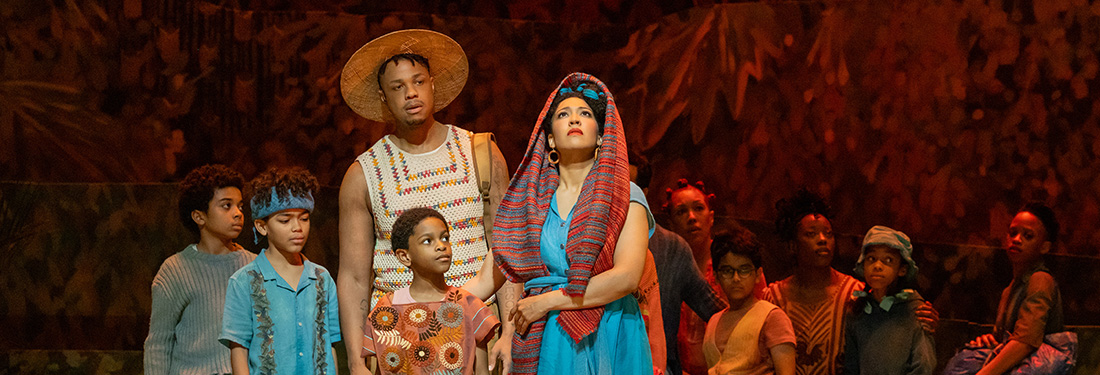
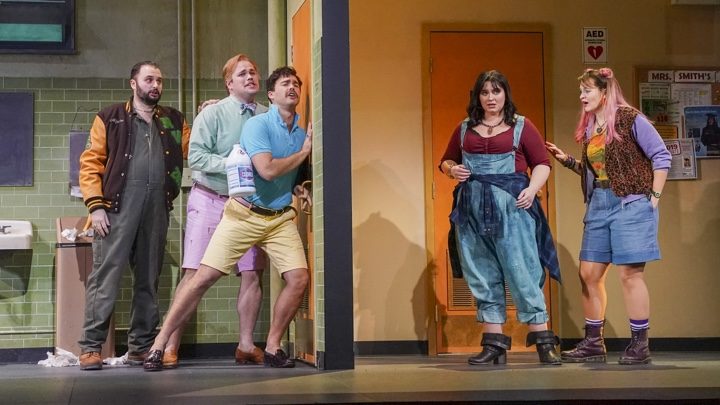
Yet Così does not have to be an obscenity. Many directors have found ways of dealing with the more problematic aspects of the opera’s plot, even using them to their dramatic advantage. Since Peter Sellars’ groundbreaking production in the ‘80s, which reimagined Così as a dark diner drama, the modern stage has been flush with productions that interrogate the disturbing ideological foundations on which Da Ponte’s libretto rests, sometimes even transforming the opera into a profound feminist statement.
And even if these stagings are not always successful, they are at least some improvement on the original libretto; never before had I seen a reimagining of Così fan tutte which actually made the opera more offensive.
Cue David Paul, whose staging of Così fan tutte at Juilliard on Wednesday evening somehow succeeded in exacerbating the vile excesses of the opera’s libretto. Paul opted to set the opera in a contemporary American high school. The four lovers were slightly dorky seniors on the eve of their high school graduation. Don Alfonso was an alcoholic janitor and Despina, a particularly callous teacher.
The result of this particular modernization was an unsettling overturning of the opera’s power relations. In Da Ponte’s libretto, Despina is, of course, the maid, and one of the few charms of the original plot is watching her connive, Figaro-style, against her mistresses.
In Paul’s production, however, this class warfare was all but lost. Instead, Despina, the teacher, was placed in a position of power over the lovers, her students. In this context, her legerdemain was downright sadistic: she seemed to have no qualms about meddling in the romantic lives of the children in her care, gleefully subjecting them to emotional trauma after emotional trauma, willfully manipulating them, exploiting their juvenile vulnerabilities, and taking pleasure in their misery.
Don Alfonso was just as predatory, frequently cornering the students in the school bathroom to groom them for bedtrickery. Both Don Alfonso and Despina seemed to take scopophilic delight in watching the students pair off in the second act, leering from beneath the school bleachers at the horrific acts of rape-by-deception perpetrated against Dorabella and Fiordiligi.
Of course, Paul did not pluck the schoolyard setting out of thin air – Da Ponte subtitles the opera “La scuola degli amanti” (“The School for Lovers”). And Dorabella and Fiordiligi are supposed to be young (teens, in fact).
Yet, there was something about Paul’s lurid modern-day setting that made the question of age all the more affronting. To watch a teacher and a school janitor deceive school students into the most abusive behaviors, and then to be expected to laugh about it, was particularly egregious to this critic.
Indeed, one of the central issues with this production was the light-hearted treatment of this otherwise heavy dramatic material. I sat waiting for some kind of political reckoning, some acknowledgement of the horrific implications of the schoolyard setting, but it never came.
Fiordiligi and Dorabella remained frustratingly naïve throughout; Ferrando and Guglielmo remained remorseless and self-absorbed; and there was no comeuppance for Despina and Don Alfonso. The opera ended with Ferrando and Guglielmo physically assaulting their girlfriends as Despina and the Don watched on. The ugly gender politics of the preceding three hours remained more or less unaddressed.
For all its vapes and iPhones, this modern production seemed altogether unaware one of the most important events of the last decade: the “Me Too” movement. Indeed, to stage this production in a conservatory after so many conservatories have come under fire for protecting and apologizing for abusive teachers, seemed particularly poor optics.
For all the problems with Da Ponte’s libretto, Mozart’s music is so often this opera’s saving grace. Mozart’s score for Così is one of his most ravishing, almost devoid of Sturm und Drang, (almost) every number in some dazzling major key.
Sadly, much of its brilliance was lost during Wednesday night’s performance, stifled under the particularly lethargic baton of Nimrod David Pfeffer. Although this was a modern production, Pfeffer’s tempi were right out of the 1950s, with unwieldly ritardandi approaching the cadences and gaping general pauses which interrupted the flow of the score.
The orchestral playing was unnecessarily heavy handed, particularly in the strings, and the score faltered as a result. In the overture, especially, Pfeffer failed to coordinate Mozart’s disjointed opening gestures, his musicians lagging behind as they leaned all to weightily into the tutti chords.
A perfect example of this ham-fisted approach came in “Soave sia il vento”. There is a moment towards the end of the trio where the voices drop away and we hear, once again, the oscillating violin figure from the start of the number, which suddenly drops down to a minor chord in preparation for the cadence. It is one of the most breathtaking moments in all of Mozart’s oeuvre, striking in its simplicity.
Under Pfeffer’s baton, these violin undulations were not so much gentle breezes as turgid waves – yet even these were overpowered by the violas, churning out an inner voice with far too much vibrato. This fleeting moment was but a microcosm of a performance that often felt more Verdian than Mozartian.
We have become accustomed to a certain sense of levity and spontaneity in modern Mozart performances (take, for example, Yannick Nézet-Séguin’s exhilarating 2013 recording of Così for Deutsche Grammophon). By contrast, Pfeffer’s interpretation felt excessively square or plodding, its pace dragging despite cuts to the score.
Faced with all the pitfalls of this production and its musical direction, the opera’s cast successfully held their own. If nothing else, Wednesday night’s performance was a charming showcase of Juilliard’s emerging talent.
Kathleen O’Mara was a fresh-voiced Fiordiligi, making light work of this notoriously taxing role. For the most part, O’Mara’s tone was bright and pure, although she explored some of the more muscular corners of her chest voice in an energetically sung “Come scoglio”.
Her “Per pietà, ben mio, perdona” was the musical highlight of the evening, sung with warmth, tenderness, and subtlety. Unfortunately, her aria was somewhat undermined by the coitus staged, rather tastelessly, in the background (indeed, superfluous movement was something of a hallmark of this production).
Megan Moore’s Dorabella complimented O’Mara’s Fiordiligi with a smooth, silky tone and a delightful command of Mozartian line. Moore found interesting colors in the ensemble scenes – her duets with Guglielmo, especially, saw Moore flex some impressive dramatic chops.
Erik van Heyningen brought plenty of fortitude and vigor to his Guglielmo, singing with a broad, robust tone throughout. If his seduction of Dorabella might have been a tad gentler, his “Donne mie, le fate a tanti” was bursting with metallic strength.
James Ley’s honeyed tenor lent a sweeter tone to Ferrando. His was a particularly soft-edged Ferrando, which didn’t always work for the more bracing ensembles of the first act. However, Ley came into his own in the second act, cooing through his interactions with Fiordiligi.
Mer Wohlgemuth delivered a lively Despina: her “Una donna a quindici anni” was suitably spry, although her voice was occasionally lost amongst the larger voices in the ensembles. William Socolof’s Alfonso was creepy and brooding, matched with a dark, understated vocal tone, particularly impressive in his upper register.
In general, this astute young cast were at their best when left to their own devices, unencumbered by the busy staging. It was these moments that were the most moving, allowing the raw emotion to swell to the surface, unmediated by excessive choreography. Sometimes Mozart’s music and an enthusiastic cast of singers are all that’s needed for an opera as intimate and personal as Così.
Photo: Richard Termine
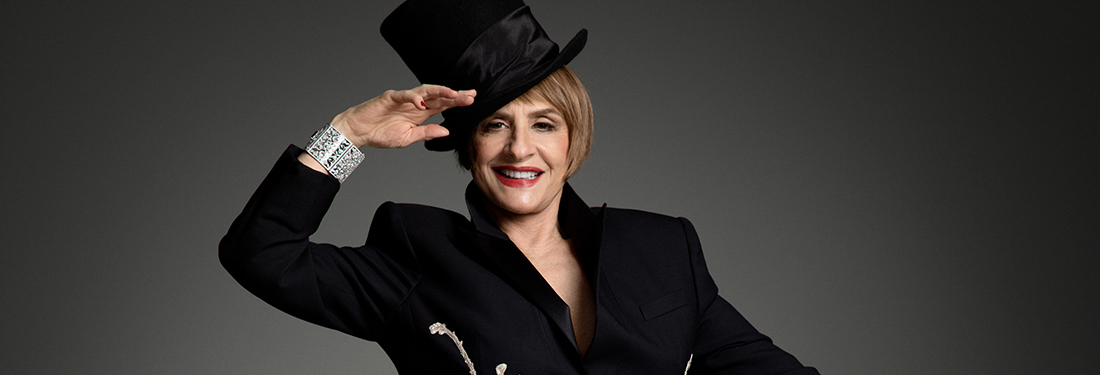
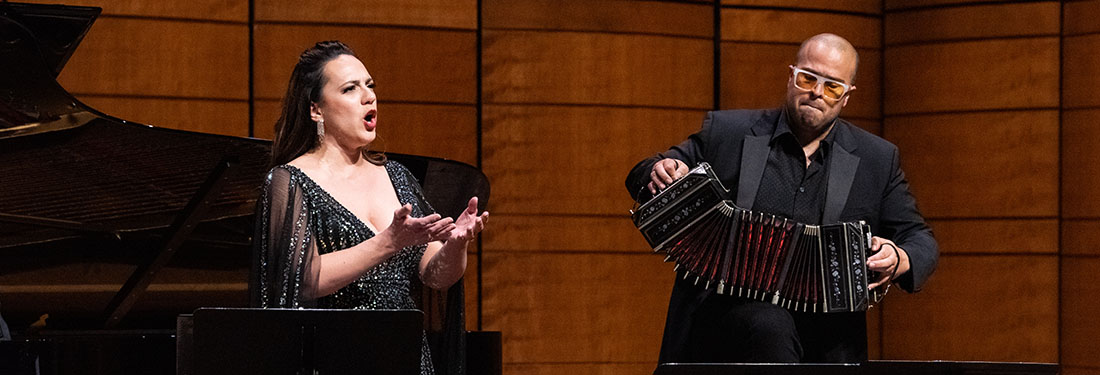
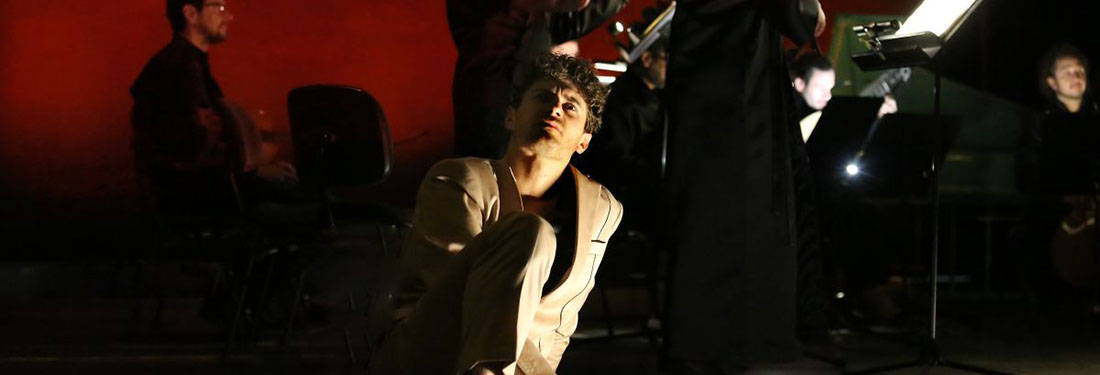
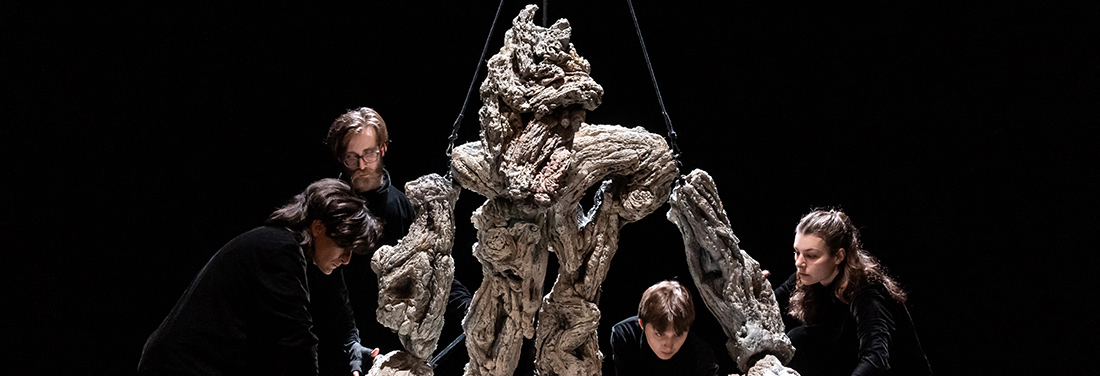
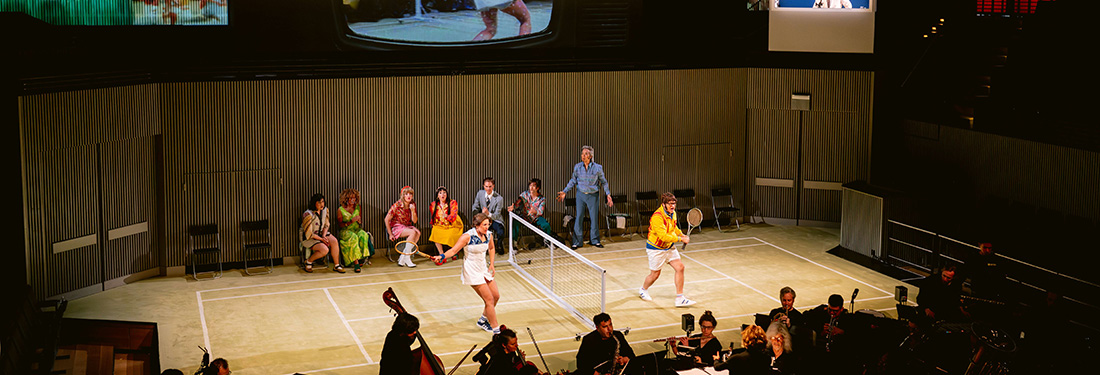
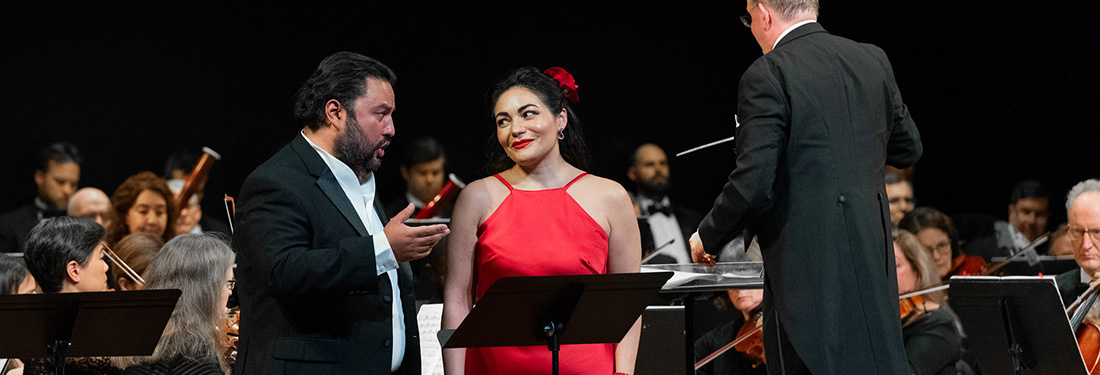
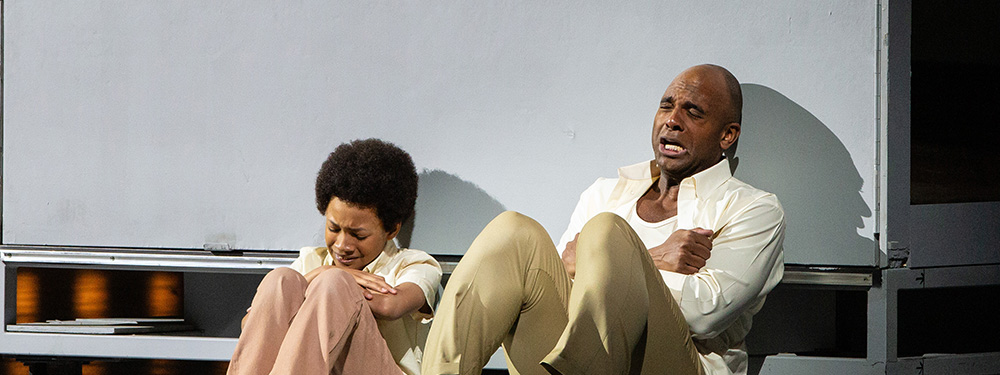
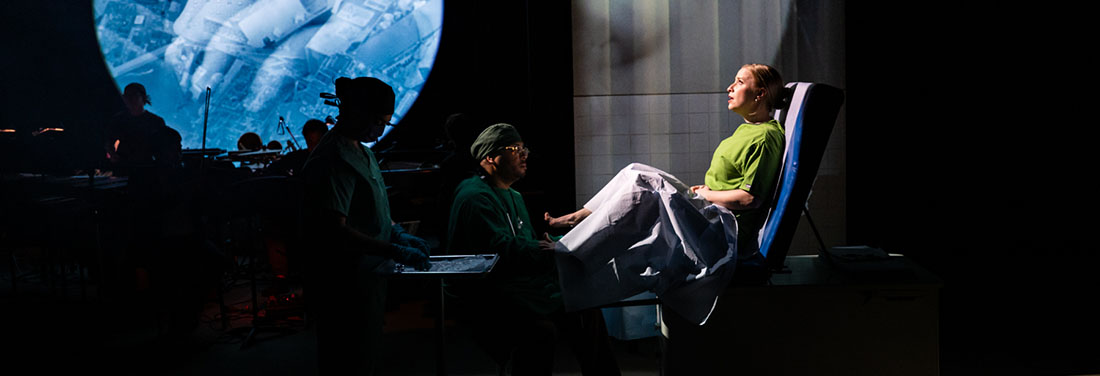
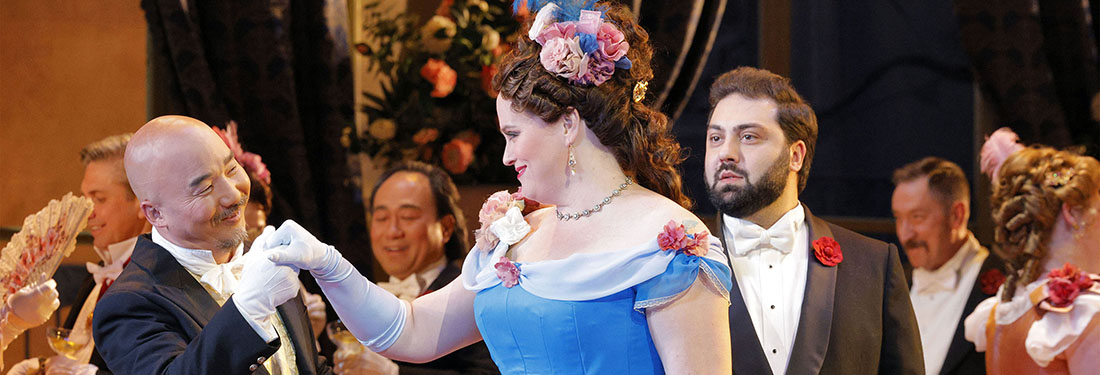
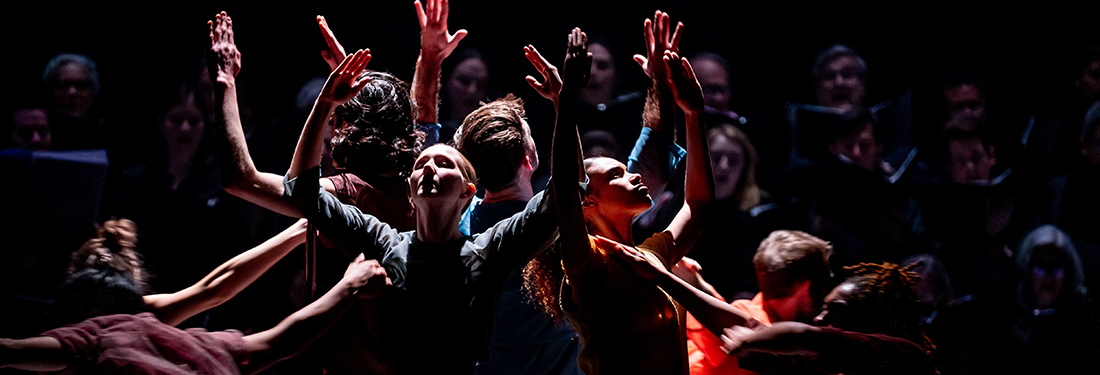
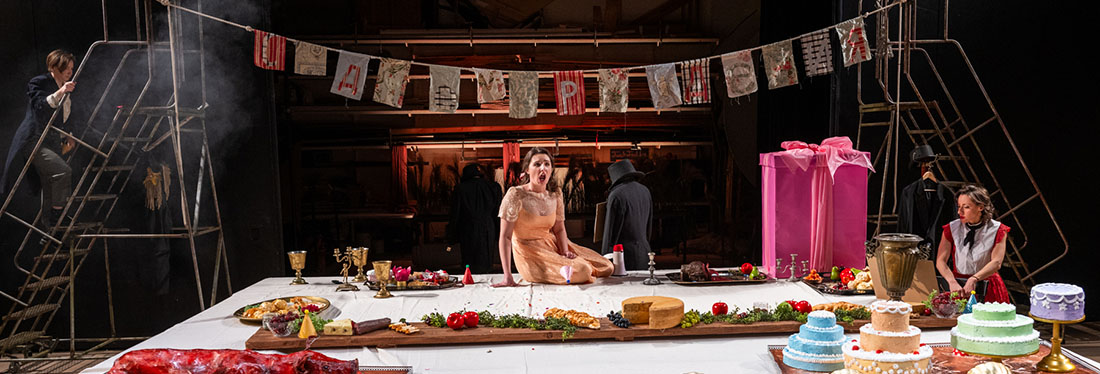
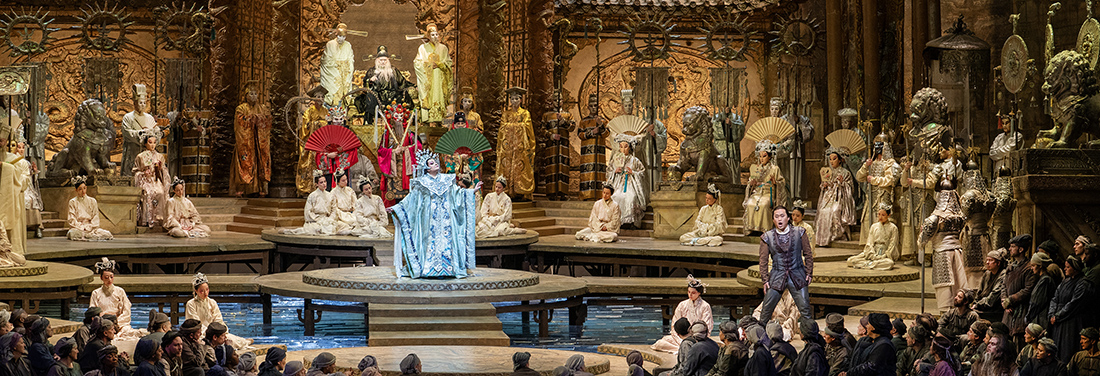
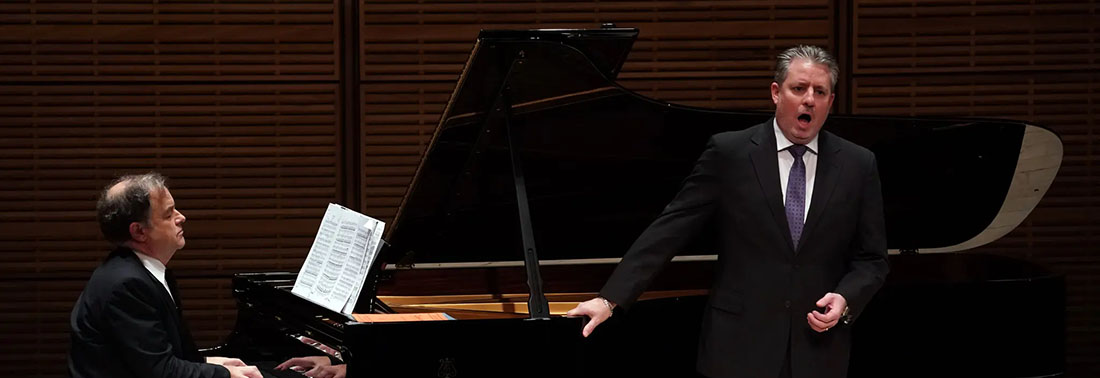
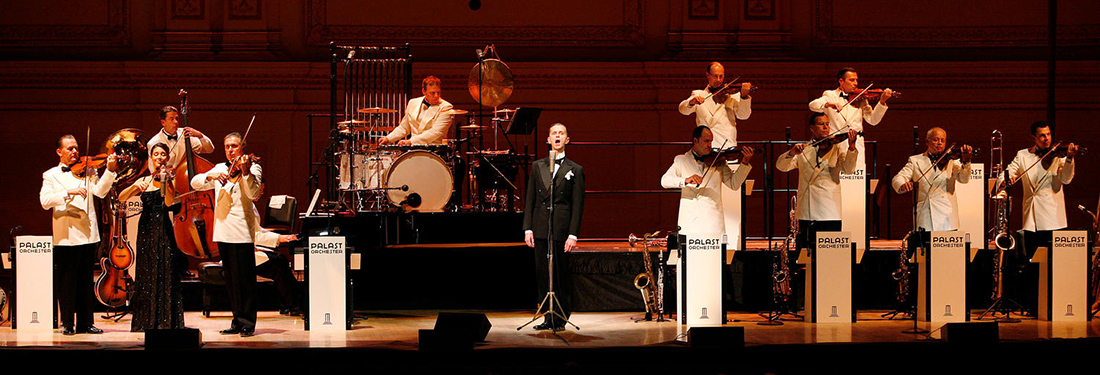
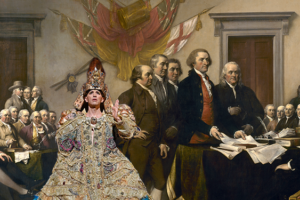
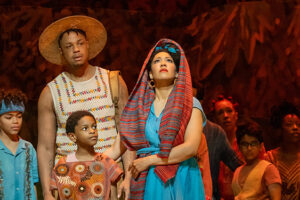


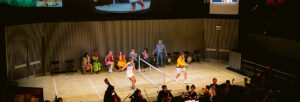
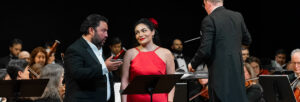



Comments